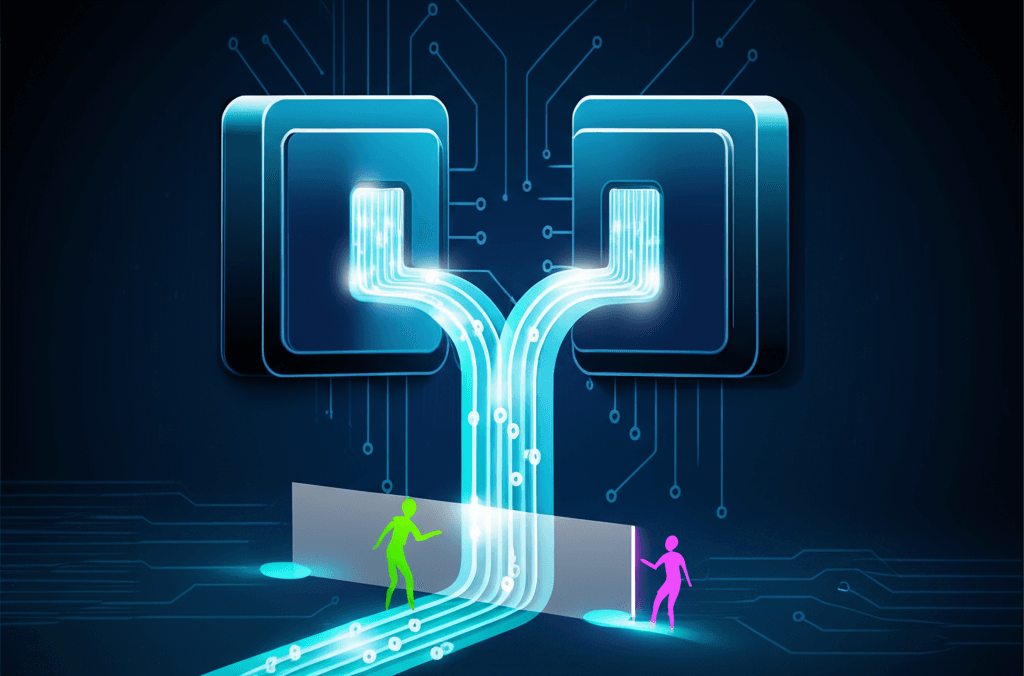xAI alleges Apple and OpenAI scheme to monopolize AI markets
Musk's xAI sues Apple and OpenAI, alleging a monopolistic scheme to control the future of AI chatbots and smartphones.
August 26, 2025

In a significant escalation of tensions within the technology sector, Elon Musk's artificial intelligence company, xAI, has filed a sweeping antitrust lawsuit against Apple and OpenAI.[1][2][3] The lawsuit, lodged in a Texas federal court, accuses the two giants of engaging in an "anticompetitive scheme" to monopolize the burgeoning markets for AI chatbots and smartphones.[4][5][6] At the heart of the complaint is the partnership that deeply integrates OpenAI's ChatGPT into Apple's operating systems, a move that xAI alleges unlawfully stifles competition and prevents innovators from challenging their dominance.[7][8][9] The legal filing seeks billions of dollars in damages and a court order to dismantle the partnership, setting the stage for a high-stakes battle with profound implications for the future of artificial intelligence development and distribution.[1][2]
The central pillar of xAI's legal challenge is the exclusive arrangement announced in June 2024 to embed ChatGPT's capabilities within Apple's iOS, iPadOS, and macOS.[8][9][10] According to the complaint, this integration makes ChatGPT the sole generative AI chatbot to benefit from the immense volume of user prompts originating from hundreds of millions of iPhones.[1][11] This privileged access, the lawsuit contends, provides OpenAI with an unparalleled advantage in data and scale, making it exceedingly difficult for competitors like xAI's Grok chatbot to innovate and compete effectively.[9][11] The lawsuit argues that this partnership leverages Apple's alleged monopoly power in the U.S. smartphone market, where it holds a significant share, to solidify OpenAI's purported 80% dominance in the generative AI chatbot market.[1][7][12] This fusion of market power, xAI claims, creates a formidable barrier to entry for other AI companies and harms consumers by limiting their choices.[13][14]
Beyond the deep integration of ChatGPT, the lawsuit levels specific accusations against Apple regarding its management of the App Store.[2] xAI alleges that Apple deliberately deprioritizes and suppresses competing AI applications in its App Store rankings and curated lists.[9][14] The complaint points to the absence of the X app and the Grok app from prominent sections like Apple's "Must-Have Apps" guide, despite their popularity, as evidence of this alleged bias.[11][14] The lawsuit asserts that "if not for its exclusive deal with OpenAI, Apple would have no reason to refrain from more prominently featuring" these competing apps.[7][8][15] Furthermore, xAI claims it has requested to integrate Grok directly into Apple's iOS ecosystem but has not been permitted to do so, unlike ChatGPT.[1] These actions, according to the lawsuit, are part of a concerted effort to disadvantage rivals and maintain the dominance of the Apple-OpenAI alliance.[2] Apple has previously maintained that its App Store is designed to be "fair and free of bias," a position that will now be scrutinized in court.[1][13]
This legal confrontation does not exist in a vacuum but is the latest chapter in a long-running and increasingly acrimonious feud between Elon Musk and OpenAI CEO Sam Altman.[8] Musk was a co-founder of OpenAI in 2015 but departed in 2018 amid disagreements over the organization's direction, later becoming a vocal critic of its transition to a for-profit entity.[8][2][6] This new lawsuit follows a separate legal action by Musk against OpenAI and Altman, accusing them of betraying the company's founding mission to benefit humanity.[1][16] OpenAI has dismissed the latest filing as being "consistent with Mr. Musk's ongoing pattern of harassment."[1][2][14] The personal history and competitive rivalry between these influential figures add a layer of personal drama to the significant antitrust questions raised by the case. The lawsuit merges Musk's social media platform X and his AI venture xAI as plaintiffs, positioning them as innovators being blocked by an entrenched duopoly.[1]
The resolution of this lawsuit could have far-reaching consequences for the AI industry. It represents one of the first major antitrust challenges in the generative AI space and may compel courts to define the competitive landscape of this new market for legal purposes.[15][17] A victory for xAI could potentially unravel the deep partnership between Apple and OpenAI, forcing greater openness on the iOS platform and leveling the playing field for competing AI models. Conversely, a ruling in favor of Apple and OpenAI could validate the strategy of deep integration between platform holders and leading AI labs, potentially encouraging further consolidation. The case echoes other antitrust battles waged against Apple over its App Store policies, such as the one initiated by Epic Games.[15] As the AI revolution continues to accelerate, this lawsuit will be a critical test case, scrutinizing the power of tech giants to shape the future of this transformative technology and determining whether the market will foster open competition or be controlled by a select few.[18][17]
Sources
[1]
[4]
[5]
[6]
[9]
[10]
[12]
[13]
[15]
[16]
[17]
[18]